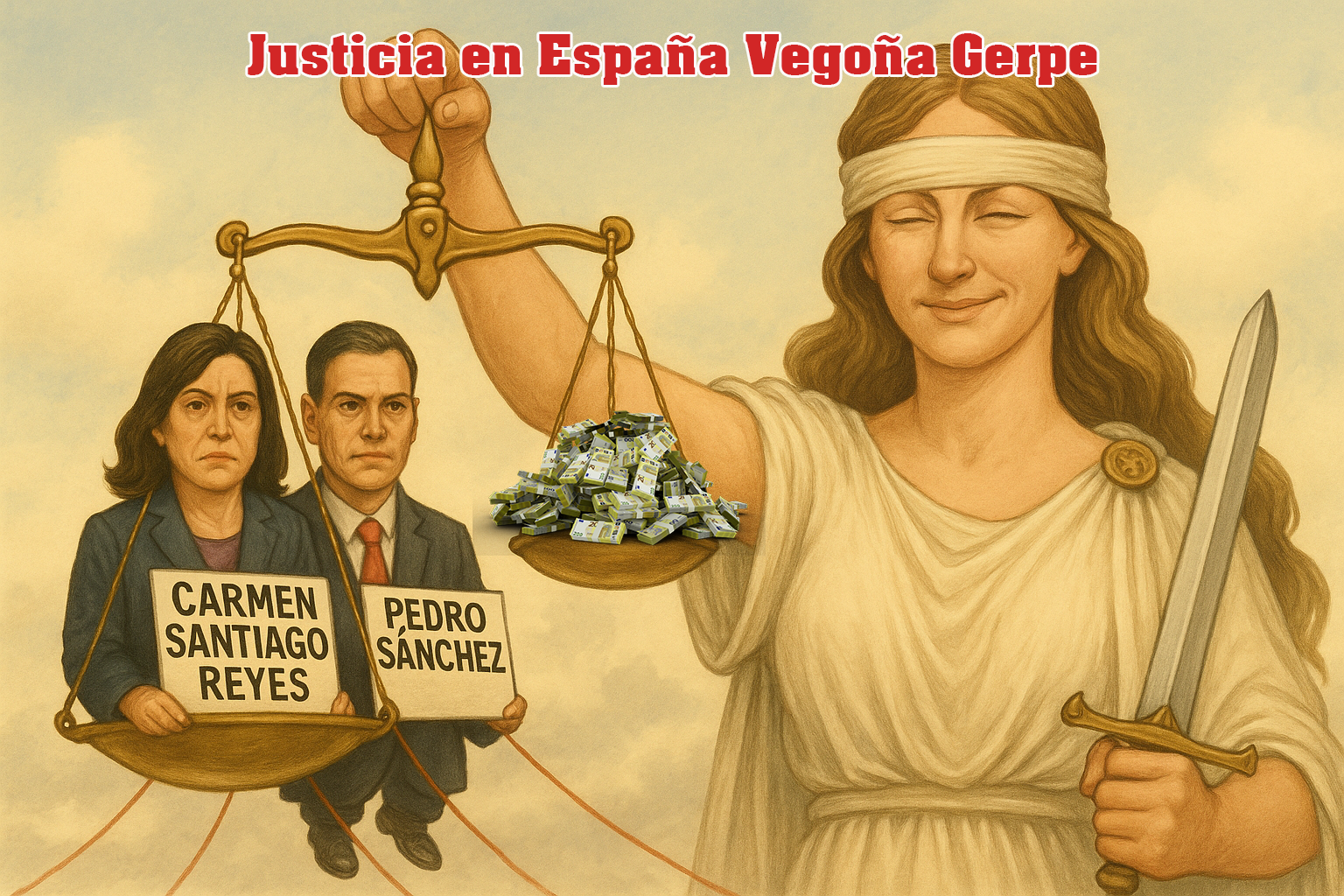
Carmen Santiago Reyes Kamira
In an era where freedom of expression should be the cornerstone of any democracy, Spain finds itself immersed in a disturbing conflict between the right to express an opinion and the machinery of legal punishment for ideological reasons. The case of Begoña Gerpe Álvarez—a lawyer, content creator, and outspoken critic of certain associative and political structures—is emerging as a symbol of how the system can persecute not so much what is said, but who dares to say it.
Following a video published in March 2023 on her YouTube channel, Gerpe has been accused of inciting hatred and discrimination for comments interpreted as anti-Roma. The paradox is that, to this day, that video remains publicly available, monetized, and serves as a transparent testament to what was actually said. Despite this, as she herself recounts in a lengthy testimony, the judicial process was prompted not by a detailed and honest analysis of the content, but by a wave of standard complaints filed by an activist linked to Roma associations, including Kamira, chaired by Carmen Santiago.

Kamira, a federation that hides behind the defense of Roma women’s rights and whose social work is apparently a fraud to the public, appears in this account apparently as a monumental fraud: as part of a network of associative power that allegedly brought legal action not to redress a real grievance, but to silence a dissenting voice. In Gerpe’s words, which we have been able to verify, a “model complaint” was used, distributed among followers, and then filed in multiple courts, with the clear objective of multiplying the legal and media impact in a clear plot of a possible violation of Gerpe’s rights.
According to the complainant, the investigating judge in the case chose to directly copy the facts set forth in the complaints, which differ very sharply from reality, without comparing them with the material: the video. This is not a technical discrepancy, but rather a key omission that places the accused in a position of absolute defenselessness. According to the court ruling, evidence of crimes under Article 510 of the Spanish Penal Code (incitement to hatred) is considered proven, without even considering that the source material—the video in question—contradicts what she is accused of.
This is not justice; it is political persecution cloaked in criminal proceedings, which are allegedly defined as a hate crime under the law.
Gerpe clearly states: “I’m not going to trial for what I said, but for what they say I said.” This is something we are certain of after watching the video. This is in addition to the fact, also reported by her, that the prosecutor’s office had dismissed other cases with more obvious evidence of a crime when it involved people close to the government. Her case, however, is moving steadily toward the bench, something the higher courts should investigate very thoroughly, as those who watch the video express the same opinion unless they allegedly belong to that association.
Beyond the legal aspect, this case brings to the fore a much more serious issue: the instrumentalization of hate crimes as a mechanism to silence dissidents. What should be a resource to protect vulnerable groups from real attacks is being distorted to shield official discourse and impose a single vision, where any criticism—no matter how based on personal and real experiences—can be criminalized.
In the eyes of the State, Gerpe is not only a critical voice, but a threat. Her massive following, her refusal to recant, and her steadfastness in defending what she considers the vital truth make her an uncomfortable figure who must be eliminated at all costs. And when the system can’t discredit you for your ideas, it seeks to silence you for your actions.
The fear expressed by Gerpe is not only about a possible prison sentence—which could exceed three years—but also about the precedent this case could set. If an opinion based on personal experiences can be criminally prosecuted without solid evidence, we are all at risk. No one will be able to tell their truth if it upsets those in power, whether institutional or associative.
The role of Kamira and other entities in this process must be thoroughly investigated. If they truly promoted a legal scheme with serial complaints to turn criticism into a crime, we would be facing a fraudulent use of the judicial system that jeopardizes not only justice, but also the basic social pact of democratic coexistence.
This isn’t about justifying prejudices or whitewashing potentially offensive expressions. But it is about demanding proportionality, objectivity, and due process. Because if the price of expressing an opinion is jail, Spain will have ceased to be a liberal democracy and become a dictatorship governed by fear.
What’s at stake isn’t just Begoña Gerpe Álvarez’s freedom. It’s yours, mine, everyone’s, and all for insinuating that this community has earned its nicknames on the street.





